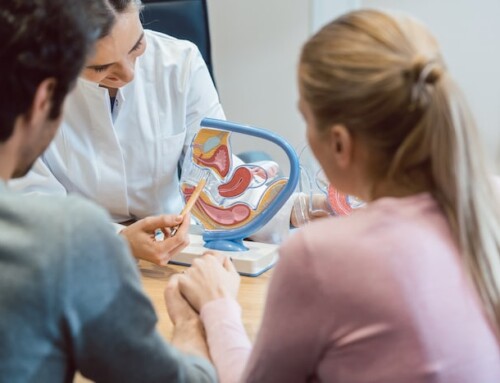 When a couple announce that they are expecting twins (or more!) everybody automatically thinks of a sweet little identical pair of babies, dressed in identical outfits. It’s not uncommon to find parents who are concerned about being able to tell them apart. But here are some things that you may not know about twin pregnancies.
When a couple announce that they are expecting twins (or more!) everybody automatically thinks of a sweet little identical pair of babies, dressed in identical outfits. It’s not uncommon to find parents who are concerned about being able to tell them apart. But here are some things that you may not know about twin pregnancies.
Multiple pregnancies can happen at the Cyprus IVF Centre. Most patients have at least two embryos transferred during the IVF process in Cyprus, sometimes a maximum of four embryos, compared to generally one in the UK. A lot depends on the quality of the embryos which develop, but at the Cyprus IVF Centre transferring multiple embryos has these benefits:
- It increases the chances of a healthy pregnancy developing
- The best value is obtained from the cost of IVF in Cyprus
- Time is often a precious commodity and transferring multiple embryos makes the most of the time you have spare for IVF treatment
- You have more chance of considering your family ‘complete’
Some patients actually request twins. For example, with PGD treatment in Cyprus, couples may want two babies of a certain gender to balance their family, and in that situation we will do our very best to maximise the chance of more than one embryo implanting.
What happens if I don’t want more than one embryo transferred ?
At the Cyprus IVF Centre we always recommend transferring at least two embryos, but if for some reason you choose to have just one transferred, then there’s an option of freezing any remaining embryos. This can be in case you wish to return for further treatment, or you can consider donating your frozen embryos to couples with issues such as treatment-related infertility or very low egg reserves.
At the Cyprus IVF Centre there are a number of factors which Team Miracle take into account when we analyse the best form of fertility treatment for a patient:
- Age. It’s a well-known fact that a woman’s fertility declines with age. By the age of 40, 75% of her eggs will result in abnormal embryos. We can assist and advise on the best fertility treatment for a woman’s specific age
- The prognosis of a pregnancy. We take into account all of the factors which could affect a live birth, for example unicornuate uterus, and will advise accordingly.
- The stage of embryo development is an important consideration; some embryos won’t develop past day 3 and need an earlier transfer
- All of our treatment choices are optimised for the individual. We assess all the circumstances before we decide which type of fertility treatment is best for you
Once my twin pregnancy has been established in Cyprus, what else should I consider ?
You may need to increase your intake of recommended vitamins and minerals. Standard, industry-produced pregnancy vitamins are optimised for single pregnancies but a twin pregnancy might need more. For example, folic acid. The recommended dose is 1mg per day for twins, compared to 400mcg for a single pregnancy.
A multiple pregnancy also means more hospital appointments for more monitoring – and more scans. Which means more chances to see your babies before they are born!
Something to watch out for after your IVF treatment in Cyprus is spotting. This is fairly common during pregnancy and often nothing to worry about. However it is known that spotting is more common with twin pregnancies. There’s no need to panic though, you only need to seek medical attention if you have severe pain, or are passing clots with heavy bleeding. This means that something is happening and it’s best to get checked out.
It’s also worth bearing in mind that pregnancy symptoms can be increased with twins; more morning sickness, more back pain and more heartburn are all possible. Symptoms usually fade relatively quickly though and once you’re holding your twin babies you’ll forget all about them.
Interestingly, even if a twin pregnancy does develop from your IVF treatment in Cyprus, you won’t necessarily feel the kicking any earlier. Detection of foetal movement actually depends on whether you’ve been pregnant before and know what you’re looking out for.
As a multiple pregnancy progresses, you may also notice more weight gain. However, this is completely normal. There will be two babies, two placentas and more amniotic fluid. You will also need to consume more calories. But the old adage of ‘eating for two’ doesn’t need to be doubled for twins. This is a myth. For a woman of normal weight, the guidelines show that a gain of somewhere between 15-40 lbs is recommended.
Another thing to look out for is pre-eclampsia. This is the precursor to the far more serious eclampsia, which requires immediate medical
intervention. Pre-eclampsia is more common in twin pregnancies and signs include:
- High blood pressure
- Protein in the urine
- Swelling of the feet, hands or legs
Though less serious than eclampsia, pre-eclampsia still requires swift treatment.
And finally, your twin pregnancy through IVF in Cyprus may result in you meeting your babies a little earlier. Labour and delivery for twins normally occurs between 36-37 weeks, although any time after 34 weeks usually means no problems. Stopping premature labour can be a problem, but with the high standard of care in today’s neonatal units, this is less of a worry.
You should also consider a Caesarean delivery carefully. There is more chance of twins being breech – which in turn means more chance of a C-section. There is also a generally raised risk of a surgical delivery with any multiple pregnancy.
The first few days or weeks of a twin pregnancy are always the most anxious. But Team Miracle at the Cyprus IVF Centre are very experienced in what to expect. Before, during and after your IVF treatment in Cyprus, the staff are on hand to answer any questions, queries or concerns that you may have about your twin pregnancy.
The Cyprus IVF Centre – helping to create your family.





